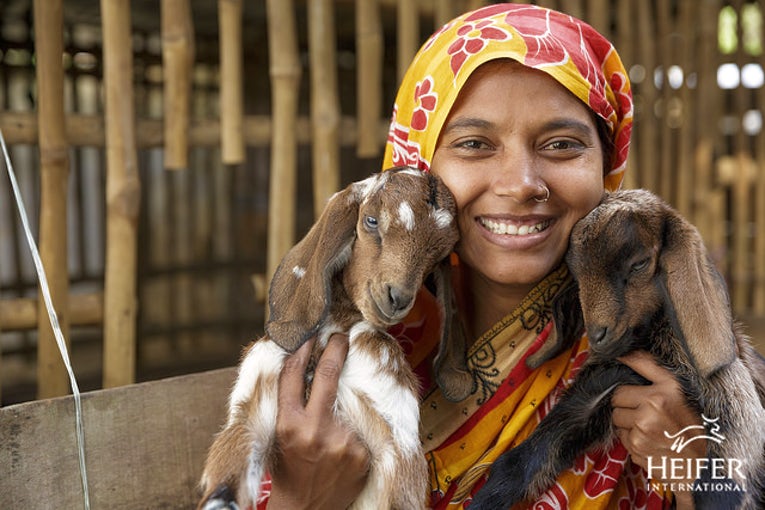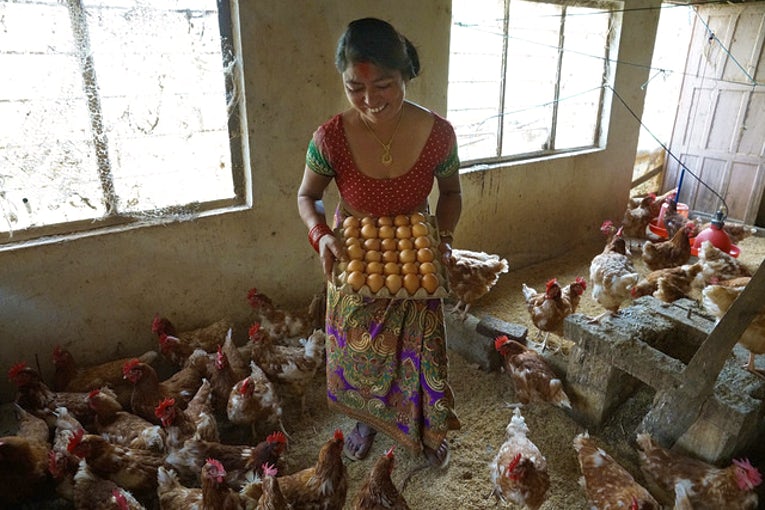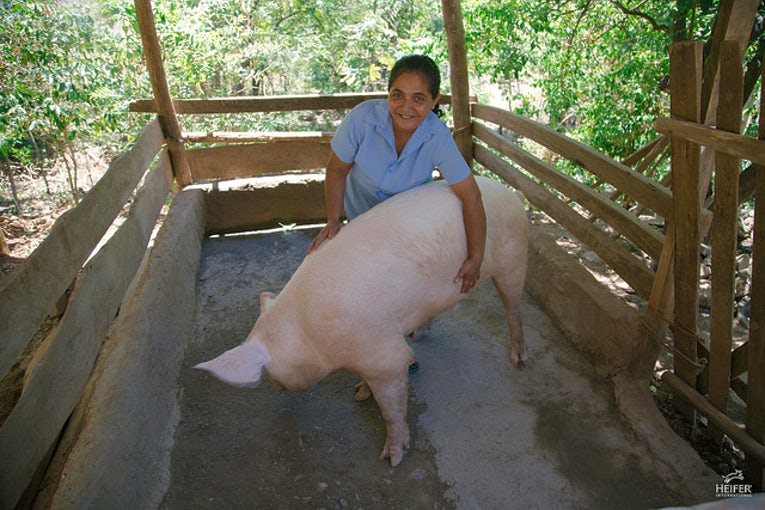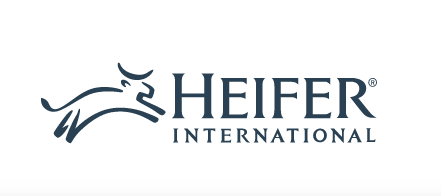



5 ways animals help reduce global poverty
Tonight, one in eight people around the world will go to bed hungry. At Heifer International, we believe livestock has a really important role to play in ending global hunger and poverty. Here are 5 reasons why.If you’re interested in learning more, check out this report from the Food and Agriculture Organization of the United Nations.
1. Animals provide nutritious food
In poor countries, many people — especially women and girls — have few high nutrient foods like pulses, milk, meat or eggs in their diets. With animal proteins, people can get the nutrients they need quicker and with smaller amounts of food. That’s what makes them especially important in areas of high malnutrition.

2. They generate income
Livestock products can be used in many different ways. Chicken eggs can be collected and sold. Milk from cows and goats can be turned into yogurt and cheese. And of course, animals can be used for their meat. With the right training and access to markets, all of these products can be sold, providing money for health care and sending kids to school.

3. They help empower women in rural communities
More than half the world’s farmers are women, but because they live in highly patriarchal countries and communities, they often don’t have control over the land they farm. In many communities, looking after chickens, goats or other animals is seen as ‘women’s work’, because men don’t think it’s worth the effort. But in reality, it can often be highly profitable. With their own incomes, women can have a say in decision-making processes in their homes and communities. Research shows that women reinvest up to 90% of their earnings back into their households. That’s money spent on nutrition, food, healthcare, school, and income-generating activities that helps break the cycle of poverty.

4. They increase access to renewable energy
Animals produce waste — lots of it! In many of the communities where we work, people don’t have access to energy. They often cook using wood fires but chopping down trees can be bad for the environment. Animal waste can be used to make biogas which can fuel stoves, giving communities a renewable source of energy.

5. They make communities more resilient to climate change
As water levels continue to rise and shifting rain patterns cause floods and droughts around the world, farmers are losing their crops. In most parts of the world, farmers can only grow two crops per year. Animals can provide a quick source of income to get families through an emergency period.
You can support Heifer International by donating here.
Words: Chris Coxon




